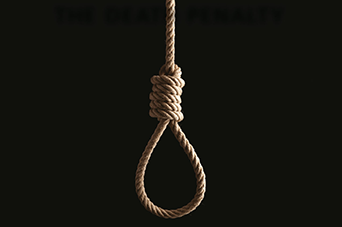THE DEATH PENALTY
THE FALL OF CUSTODIANS OF VALUES
Dr. Jehan Perera warns of a hardness of heart in imposing the death penalty
The government has come in for criticism from human rights groups at home and abroad for announcing its latest stance on implementing the death penalty. And the Human Rights Commission of Sri Lanka has called on the government to abolish the death penalty entirely as over 100 other countries have done.
In deference to this criticism, the president seems to have relented. He has taken the position that only those who have been sentenced to death and are in prison but continue to ply their trade from within prison cells will be subjected to the death penalty.
The government is not of one mind on the issue of reintroducing the death penalty, which has not been executed since 1976. State Minister of Power and Renewable Energy Ajith Perera reflected the government’s ambivalence on the issue when he said that carrying out the death sentence will not prevent crime, adding that this is a lesson he learned through his experience as a lawyer and lecturer at the police training school.
He remarked: “I have learned though my experience that crimes cannot be stopped by imposing the death sentence. But we will support President Maithripala Sirisena in his decision to impose the death sentence on those who are charged with crimes pertaining to drugs.”
The basic flaw in the government’s understanding is that it seems to think that by eliminating individuals, it can get rid of the problem. However, those behind bars are often not the leaders or financiers of drug cartels.
There will always be replacements for individuals who are executed. Instead of executing individuals (some of whom might be innocent or have been framed), it is necessary to improve policing and integrity in public life. Religious leaders in particular – custodians of society’s higher values – must take the lead in this regard.
Many years ago, in a time of the war when the LTTE controlled large swathes of territory in the north and east in 1998, I visited the north of the country and stayed at the residence of the former Bishop of Mannar Rayappu Joseph.
He was often misunderstood as an LTTE supporter on account of his strong views on Tamil rights and the legitimacy of the Tamil cause. But he was also one of two Catholic bishops who mediated between the government and LTTE in the tenure of then President Chandrika Kumaratunga to bring peace to the country in accordance with the religious precept that all human life is sacred, and should be safeguarded and not destroyed.
A book in the bishop’s house that I happened to come across included a long letter to the people of America written by the Catholic bishops of that nation. It was on the Cold War between the US and Soviet Union, which continued amid the ever-present threat of nuclear war.
The bishops were aware of the antipathies that Russia aroused in the American people. In fact, former US President Ronald Reagan had described the Soviet Union as the ‘evil empire’ at the time. But as religious leaders, the bishops felt obliged to keep raising in the realm of the political debate some truths that ought to ground their involvement in political affairs.
They pointed out that “the Soviet people and their leaders are human beings created in the image and likeness of God… We do warn against ‘hardness of heart,’ which can close us or others to the changes needed to make the future different from the past.”
Not even five years after the US bishops wrote this letter, their predictions began to come true as changes occurred in the Soviet Union.
The call for imposing the death penalty reflects a hardness of heart that is not in consonance with the belief that all human beings can and do change, and can be redeemed.
Similar to the death penalty, debates on Hitler and the LTTE focus on effects rather than causes. Hitler has been cited as an appropriate model of leadership for Sri Lanka at a time when the government is being compared to a bullock cart with an ox and buffalo leading it. And the return of the LTTE is being proposed as a solution to the rapes and murders reportedly taking place in the north.
It is one thing when less educated and more emotional people offer such solutions to problems in the country. But it is entirely another matter when leaders of the polity and religions do so.
As an alternative to the longing for strong leadership in the country by despots, present leaders must decide wisely together and not undermine each other.





